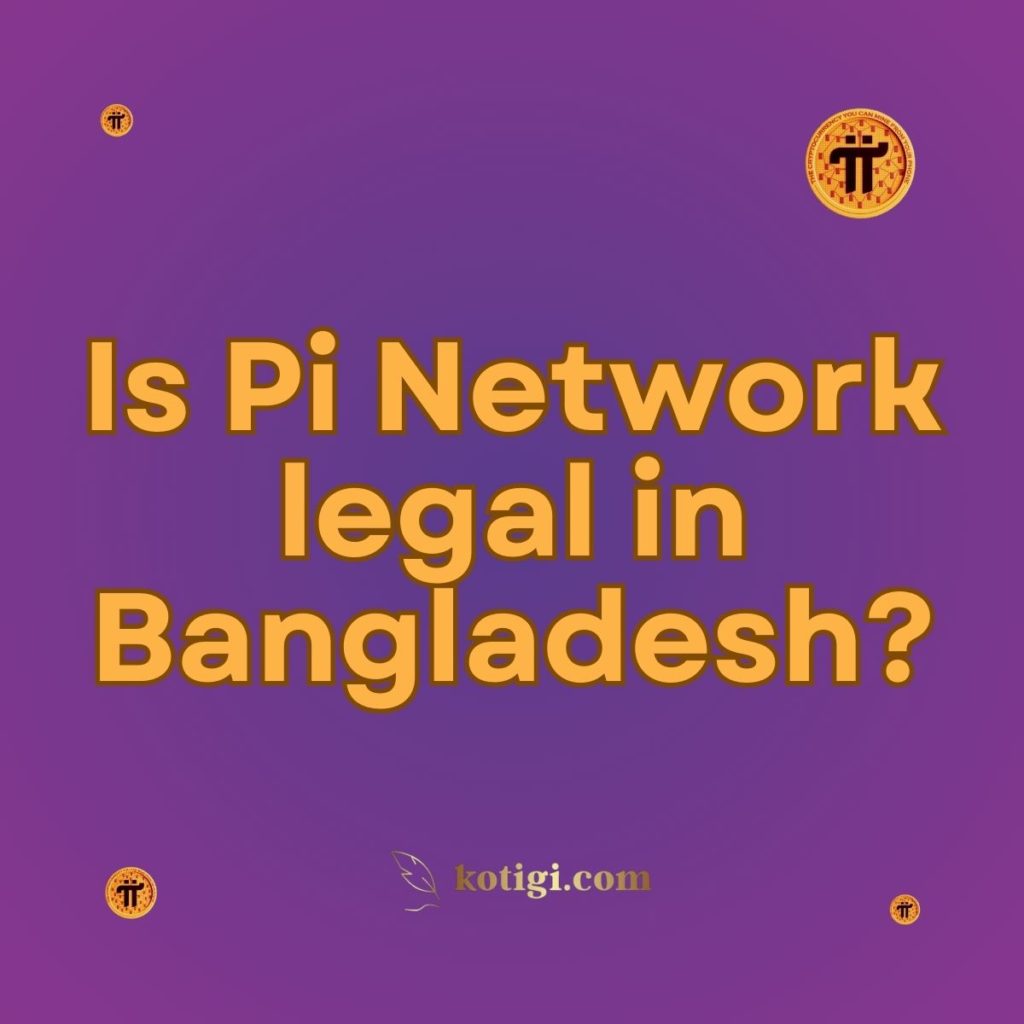
Is Pi Network legal in Bangladesh?
The legal status of Pi Network in Bangladesh is currently ambiguous, as it is not explicitly addressed by Bangladeshi authorities. Pi Network, still in its development phase, has not yet reached the point where it is considered a tradeable cryptocurrency like Bitcoin or Ethereum. This raises questions about its regulatory status in countries like Bangladesh, where cryptocurrencies face significant restrictions.
Cryptocurrency Regulations in Bangladesh
Bangladesh has historically taken a cautious approach to cryptocurrencies. In 2014, the Bangladesh Bank, the country’s central bank, issued a formal statement prohibiting the use of cryptocurrencies, including Bitcoin, for financial transactions. The primary concerns revolve around potential risks associated with fraud, money laundering, and terrorist financing. The central bank emphasized that virtual currencies do not fall under the legal framework governing traditional financial systems, making them inherently risky for consumers and investors.
Since then, Bangladesh has maintained a strong stance against the trading, buying, or selling of cryptocurrencies. Authorities have warned that using digital currencies could result in penalties, including fines or imprisonment. However, it’s essential to understand that these regulations are primarily directed at established, tradeable cryptocurrencies such as Bitcoin, Ethereum, and others currently being used in exchanges worldwide.
Where Pi Network Fits In
Pi Network operates differently from conventional cryptocurrencies. While Bitcoin and Ethereum are already widely accepted and traded, Pi Network is still in its testing phase (as of 2024). It has yet to launch its mainnet, which is the phase when Pi coins would be transferable on public exchanges and could be used for transactions.
At this stage, Pi Network users, referred to as “Pioneers,” are accumulating Pi coins through mobile mining, but these coins do not currently have any monetary value. Because Pi is not yet tradable and is not being used for transactions, it may not directly fall under Bangladesh’s existing cryptocurrency laws.
Despite this, there is still a level of uncertainty. Once Pi reaches the phase where it becomes tradeable and is listed on exchanges, the legal status of Pi coins in Bangladesh could change, potentially bringing it under the same regulatory restrictions that affect other cryptocurrencies.
Potential Risks for Pi Network Users in Bangladesh
While Pi Network’s current phase might not involve the trading or exchange of valuable assets, it is important for Bangladeshi users to stay aware of potential risks. The Bangladesh Financial Intelligence Unit (BFIU) has been actively monitoring online financial transactions and could potentially investigate activities involving cryptocurrencies if they perceive any risk to the country’s financial system.
If Pi transitions to a tradeable cryptocurrency, users could face legal consequences under existing laws. Therefore, it is essential for Pioneers in Bangladesh to remain informed about how local regulations evolve, particularly as Pi Network progresses toward its mainnet launch.
No Official Ban on Pi Network
As of now, no official statement or regulation specifically mentions Pi Network in Bangladesh. This is largely because Pi is still in its development phase, and its coins hold no tradable value. However, this does not mean it is completely free from scrutiny. The lack of clear regulations around Pi Network should not be interpreted as an endorsement of its legality.
Conclusion
While Pi Network is not explicitly banned in Bangladesh, the country’s stringent stance on cryptocurrencies could pose challenges in the future, especially once Pi coins become tradeable. As things stand, Bangladeshi users can continue to mine Pi coins on the platform, but they should remain cautious and stay informed about any regulatory changes that may arise. Given Bangladesh’s history of strict cryptocurrency regulation, it is possible that Pi Network could face restrictions once it becomes a fully functional cryptocurrency.




